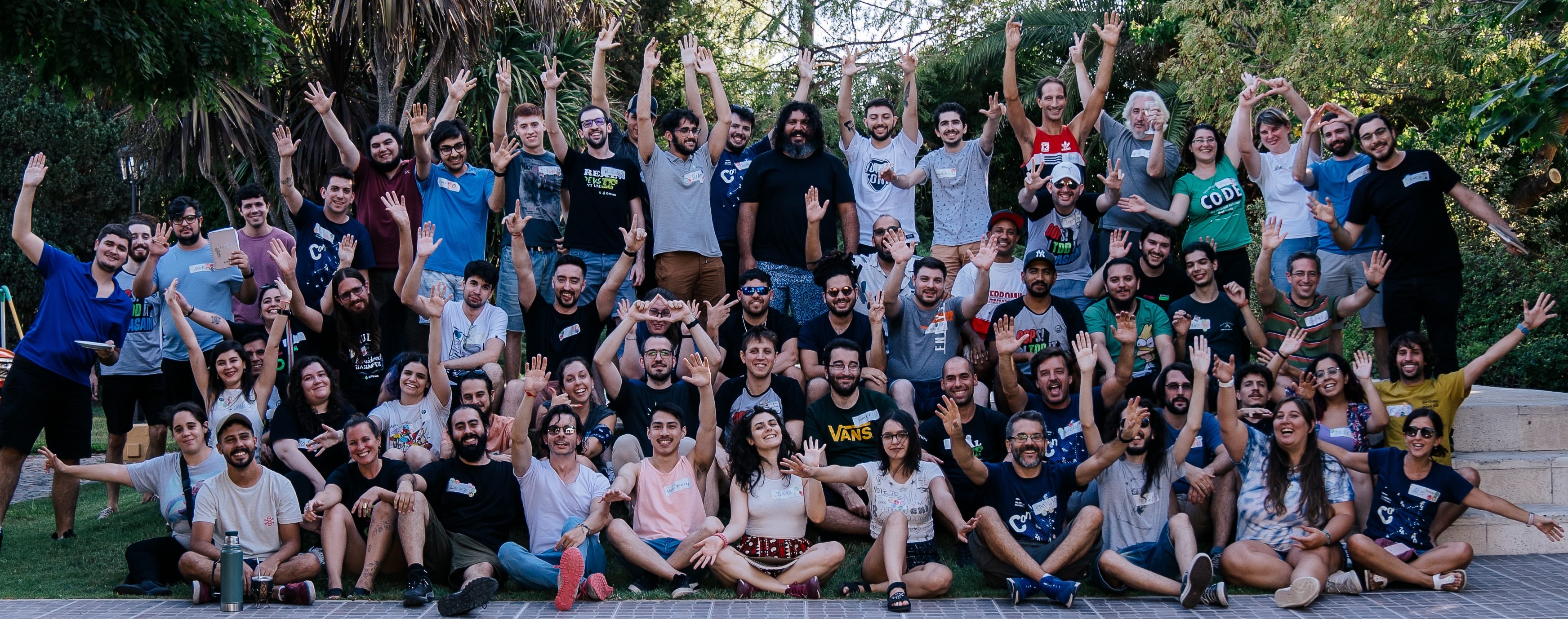
Building Workplace Democracy with Loomio and 10Pines
What if "no bosses" was more than just a cool recruiting slogan? What if every person in your company had equal say in determining salaries? Not just their own – everyone's. Sounds like a recipe for chaos, right?
At Buenos Aires software consultancy 10Pines, "no bosses" isn't just a motto – it's their operating system. Founded over 15 years ago by developers seeking an alternative to traditional corporate hierarchy, the company has grown to 80 people while maintaining a radical commitment to collective decision-making.

To make this work, they needed more than good intentions and aligned values. They needed a digital town square. Enter Loomio, a platform that turns chaotic democracy into something surprisingly... efficient and practical.
Every major decision at 10Pines – from hiring to compensation – goes through the entire team. Yes, all 80 people. And no, the sky hasn't fallen.
"Is this worth a Loomio thread?" has become their version of "should we take this to HR?" Except here, there is no formal HR team, just colleagues figuring things out together. They've set some important ground rules about engagement. For example, major decisions need 30% participation, and one objection can pause any proposal.
"Our life is a lot easier now after adopting Loomio," Nahuel shares, with the relief of someone who remembers the before times. New employees don't just get handed a policy manual – they get access to the entire history of company decisions and the reasoning behind them. Imagine starting a job and actually understanding why things are the way they are.

The fascinating part? It actually works. When someone raises a thoughtful objection, it often triggers deeper thinking by the whole group. It's what every brainstorming session aspires to be, but rarely achieves.
In a world where "employee empowerment" means choosing your own laptop brand, 10Pines demonstrates what real workplace democracy looks like. Happily, it looks a lot like getting things done.
Nahuel shares, “What we value about Loomio is that we have a record. We can move the non-contentious stuff forward within Loomio which gives us more space when we are in person to talk about what really matters. This is very useful because it frees up space in our Roots meeting. Thank you for creating Loomio. Our life is a lot easier now after adopting it.”
 Try Loomio with your own team or community today.
Try Loomio with your own team or community today.
More Q & A with Nahuel and Ludat
We are intrigued by your salary process. Tell us more about how you set compensation using Loomio?
When it comes to setting salaries, 10Pines takes a hybrid approach combining face-to-face discussions with digital documentation. "Loomio is a huge support to us," explains Ludat, who manages the platform, "but the real processing happens in person first." The process typically begins with small group discussions where initial proposals take shape. These ideas then move outward to the broader organization through Loomio, where every employee has an equal voice in the decision.
To ensure meaningful participation in these crucial decisions, the company requires at least 30% of staff to weigh in on serious matters such as salary proposals. You wouldn't want just three or four votes determining something as important as compensation. But what makes their process truly unique is the power of dissent – a single "block" vote can pause any proposal. Rather than seeing this as a potential roadblock, the team views it as an opportunity for deeper dialogue. "We've never had to override a block," Ludat shares. "Instead, we keep the conversation going until we reach genuine agreement."
This transparent approach has an additional benefit: it creates an invaluable archive of organizational wisdom. New employees can search through the history of decisions, understanding not just what was decided, but why. It's transparency taken to its logical conclusion – not just sharing numbers, but sharing the context that led to them.
What was your mindset when you began to use Loomio?
Nahuel, who's been with the team for 15 years, remembers "Things at 10Pines tend to start like an experiment, and if we like it, we stick with it." That open perspective proved crucial as they grew from a handful of idealistic devs to an 80-person organization. While other startups might have abandoned their principles under pressure to scale, 10Pines doubled down. They created an in-person monthly meeting called “Roots” that tends to the social fabric of the team. They enhanced their onboarding process to include deep dives into their decision-making history, connecting new hires directly to the company's lore. It's a far cry from the typical corporate orientation – instead of being handed policy documents, new team members get to explore the actual discussions and debates that shaped the company they're joining.
Were there any surprises along the way that you would like to share?
This commitment we have to consent instead of consensus has created an fascinating dynamic: when someone raises a thoughtful objection, it can sometimes trigger what they call a "cascade of disagreement," where others feel freshly empowered to voice their own concerns. It can seem in a moment that a proposal which was initially headed to easy passage can all of a sudden see challenges as participants add in their objections.
Rather than seeing this as a problem, 10Pines recognizes it as a sign of strength. Their collaborative culture is working exactly as intended.
Rob (ed) notes: “Loomio is designed to support that pattern. The ability to change your mind during a proposal and see the group move forward in a shared and more nuanced understanding.”
